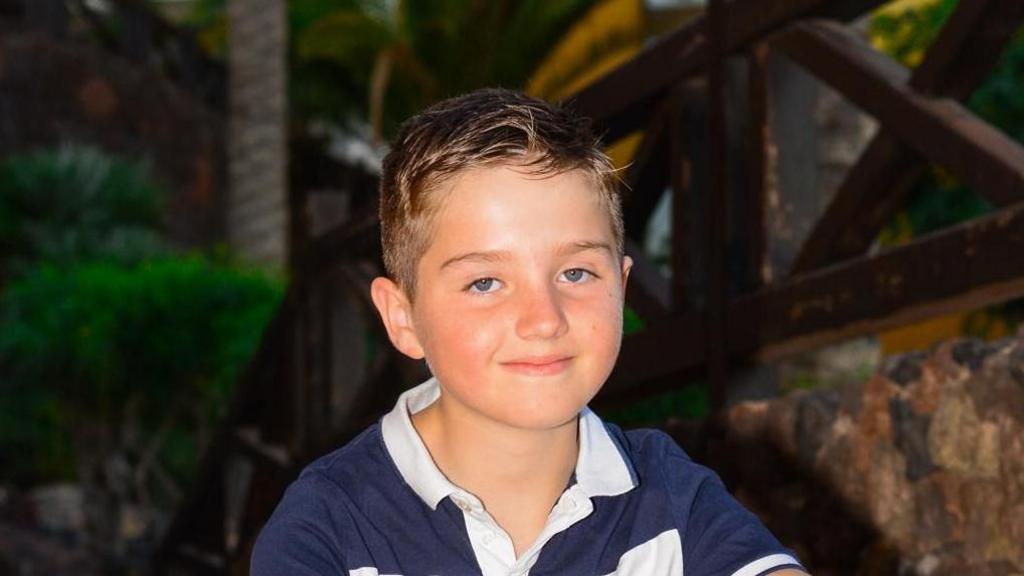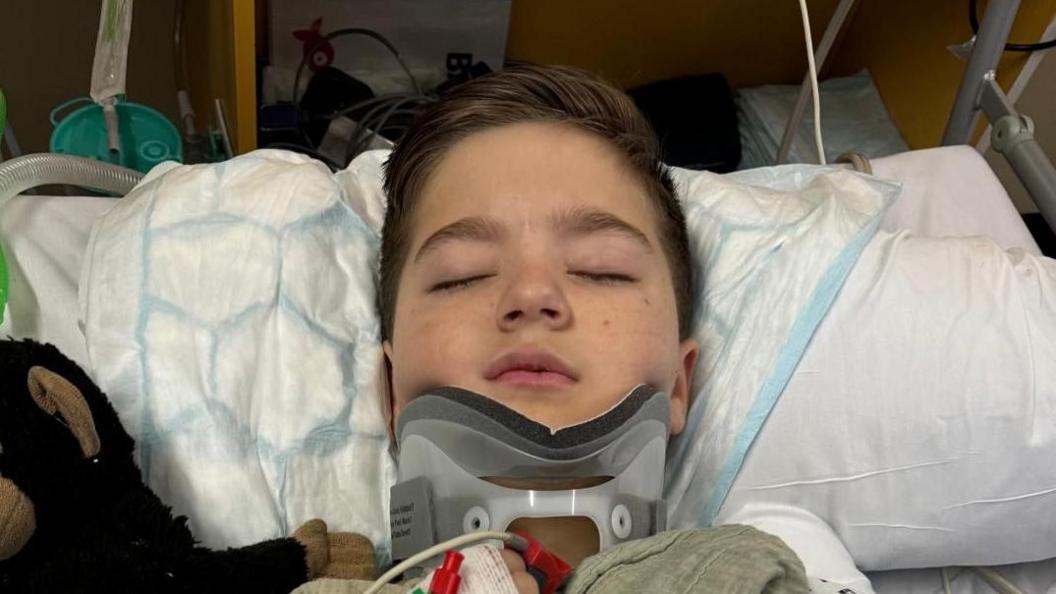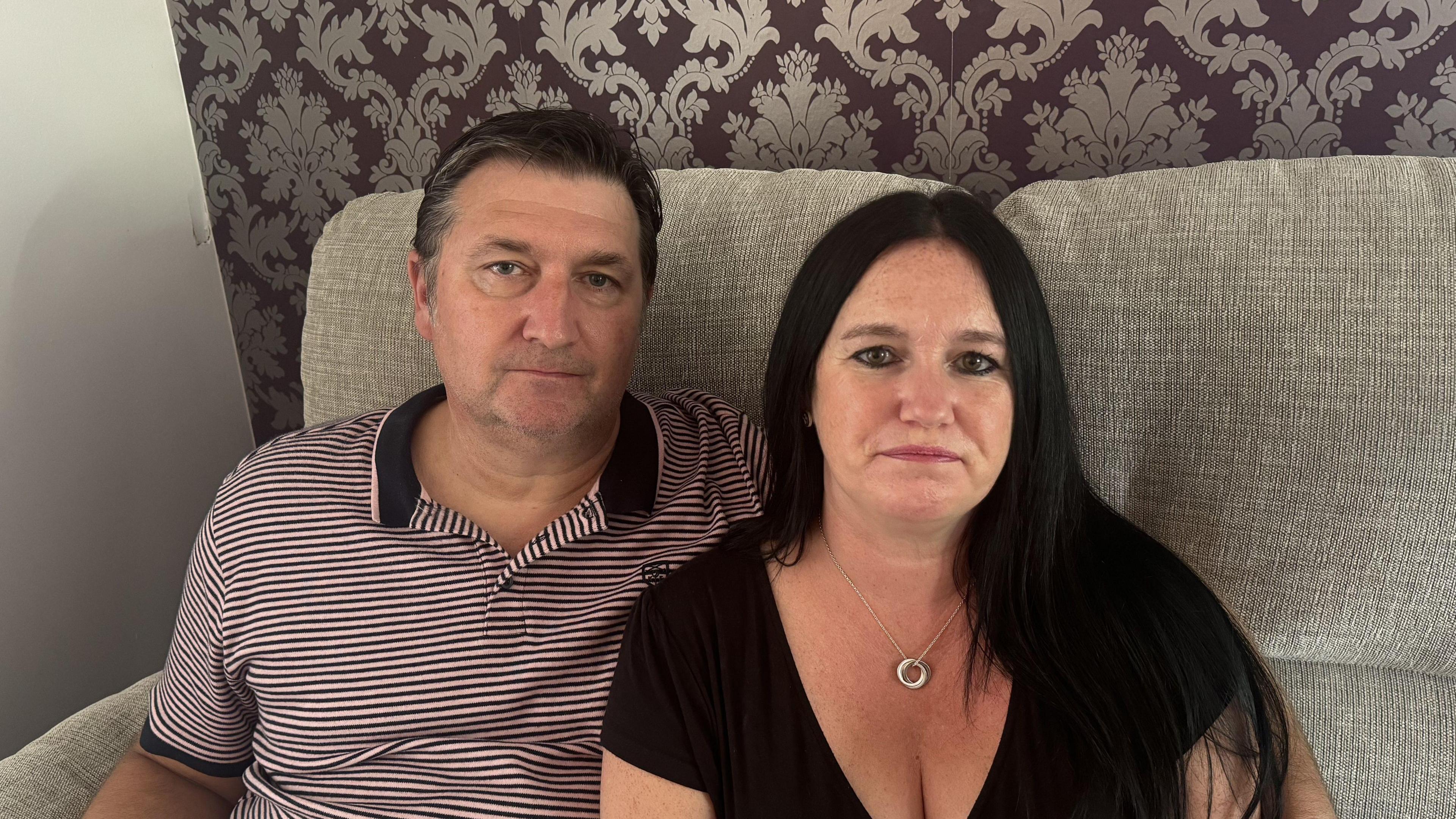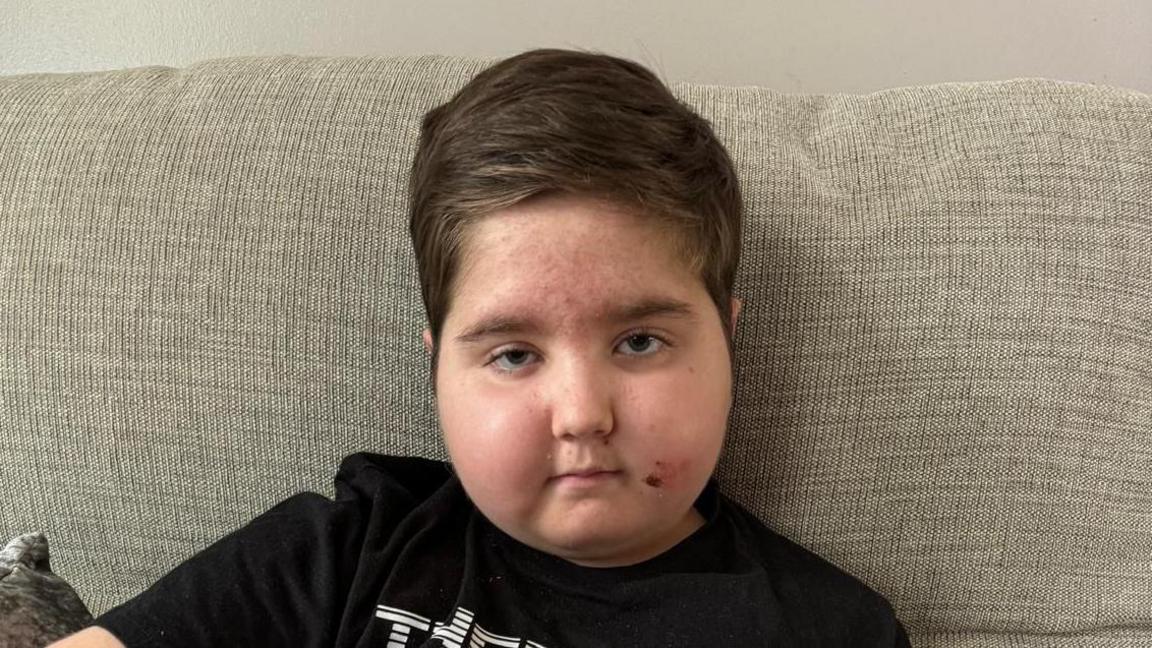Boy with incurable tumour not allowed vital drug

Ronnie, 11, pictured in January this year before he was diagnosed with a rare and aggressive brain tumour
- Published
A boy is not eligible for specialist drug treatment because his rare and incurable tumour is a millimetre too small, his parents have said.
Ronnie Hood, 11, from Sudbury, Suffolk, was diagnosed with a diffuse midline glioma in March after doctors were unable to remove the entirety of a tumour growing on his spine and brain.
After being given just nine months to live, the youngster went through chemotherapy and radiotherapy sessions which helped shrink the tumour, but only slightly.
The reduction, however, was enough to mean he would not qualify for ONC201 - an experimental drug used to treat serious brain tumours in young adults.

Ronnie Hood in hospital after having an operation to remove part of his brain tumour
"We got the news it had shrunk, which is obviously very good news, but the double-edged sword was that we are now not eligible for the drug," said his dad Nick.
"If there is a change then we will be eligible but in the meantime we are sourcing it ourselves, but it costs about £700 per pill or it would be about £4,000 a month."
Mr Hood, 58, and Ronnie’s mother Vicky, 50, took their son to be checked out in February 2023 after he said his neck was hurting and he had a tingling feeling in his fingers.
It was initially suspected the pain may be a result of his gaming, so he was sent for physiotherapy before eventually being sent for an urgent MRI roughly a year later.

Nick and Vicky Hood "broke down" after being told their son Ronnie had a brain tumour
Talking about the moment she was told of her son’s diagnosis, after an eight-hour operation at Addenbrooke's Hospital, Mrs Hood said: "I broke down and couldn't believe what was going on.
"I felt guilty because it took nearly a year for him to be diagnosed but it's very aggressive and very, very rare, so even if we’d caught it earlier it wouldn't have made a difference.
"He is only one of a handful of people in the whole world who have got this mutation on their spine – it's just horrific.
"Ronnie has gone from bouncing off the walls, riding his bike, doing art and going down the park with his friends to not being able to use his hands.
"I have to dress him, feed him and shower him. He can do hardly anything now and so it is horrific to watch him."

Ronnie's appearance has changed dramatically in the three months after his diagnosis as a result of the medication he has to take
While ONC201 is not available on the NHS, treating physicians can request it from Chimerix, a company which is running an expanded (managed) access programme for the drug.
Ronnie’s extended family members have set up a fundraising campaign in an effort to raise £50,000 to help fund the purchase of ONC201 and other treatments privately.
So far nearly £30,000 has been donated.
"We can't thank everyone enough. Everyone has been amazing," Mrs Hood said.
"Ronnie has also been absolutely amazing. He is so strong to cope with what he's had to go through and he still giggles and plays online with his friends.
"He is just an amazing little boy, he really is."
Bosses at the Cambridge University Hospitals NHS Foundation Trust, which runs Addenbrooke’s Hospital, said they were “dedicated to providing the very best levels of care”.
A spokesperson said: “While we have every sympathy for Ronnie and his family, and have approached the pharmaceutical company on their behalf, it is important to understand this drug is only available through a managed access programme directly from the pharmaceutical company by meeting their eligibility criteria.”
Chimerix has been contacted for comment.
Get in touch
Do you have a story suggestion for Suffolk?
Follow Suffolk news on BBC Sounds, Facebook, external, Instagram, external and X, external.